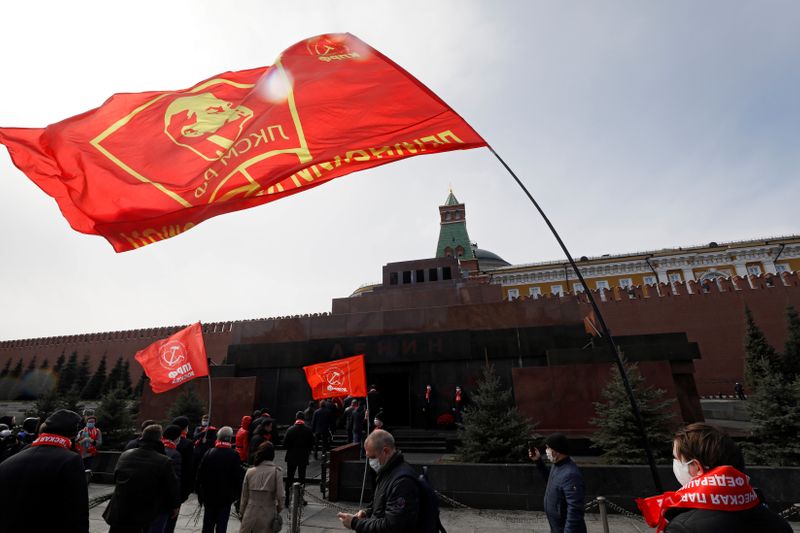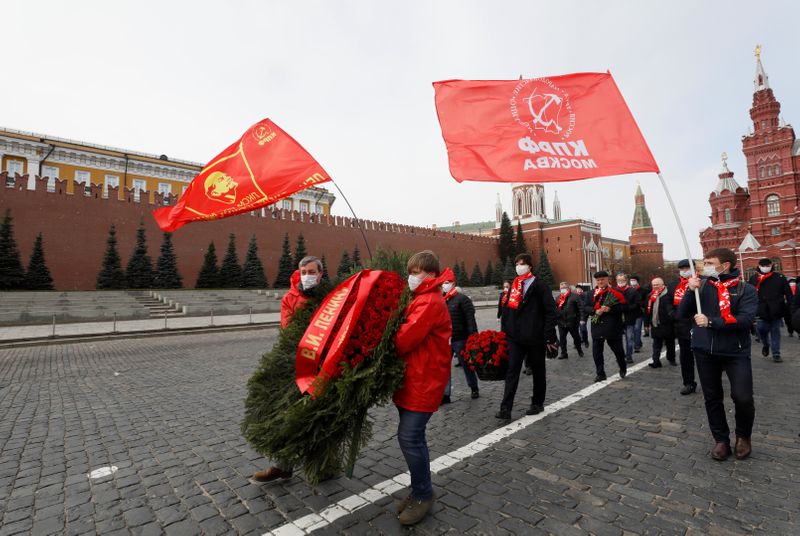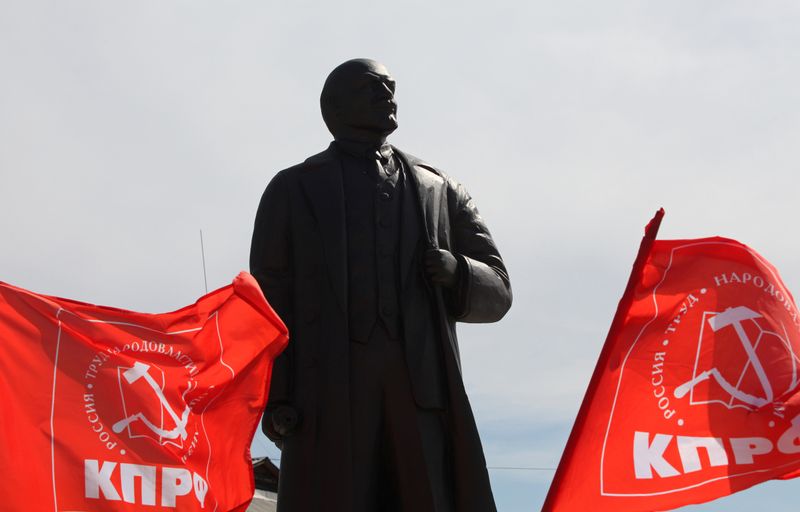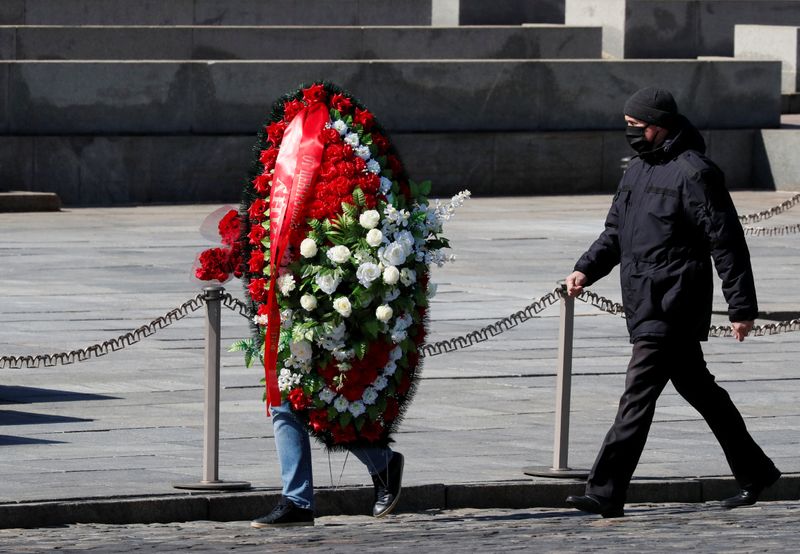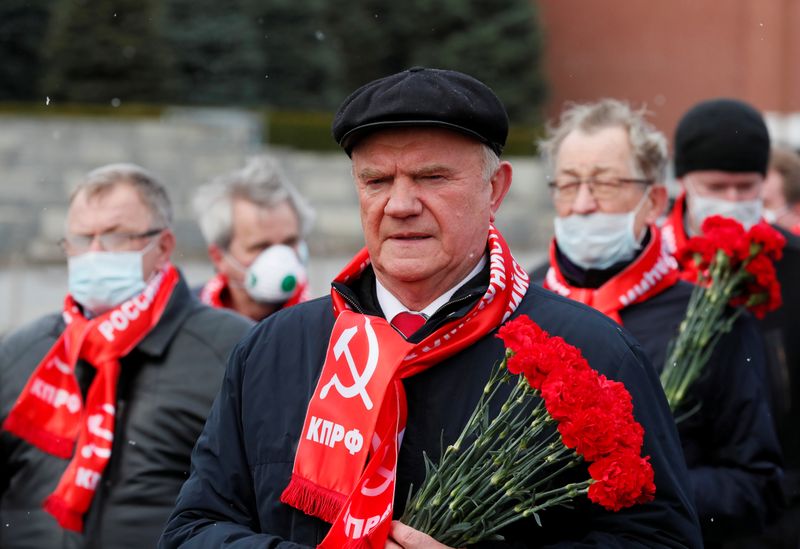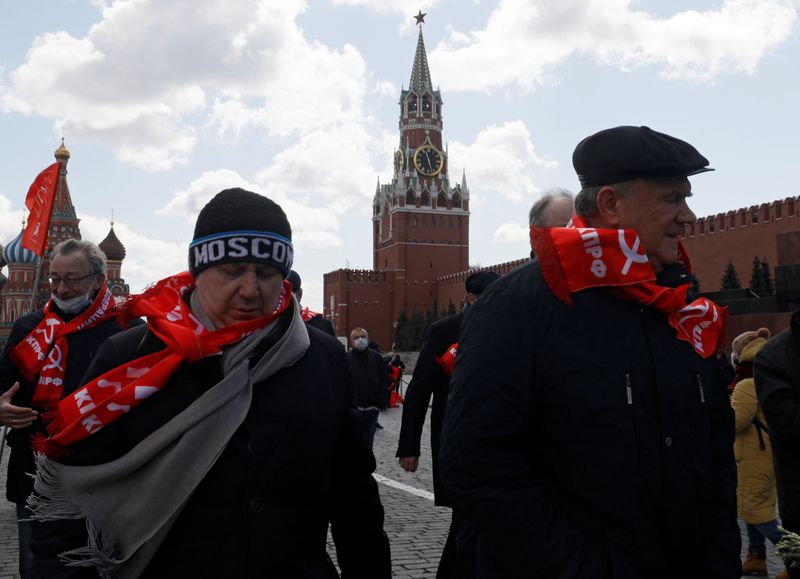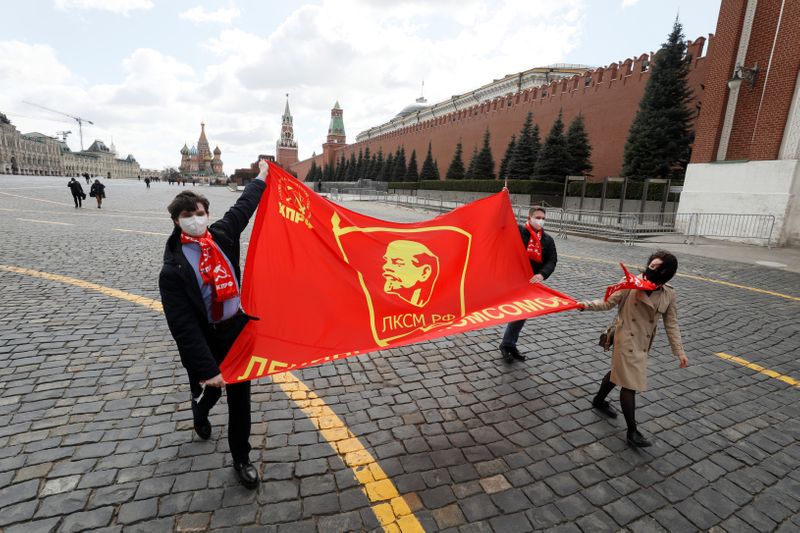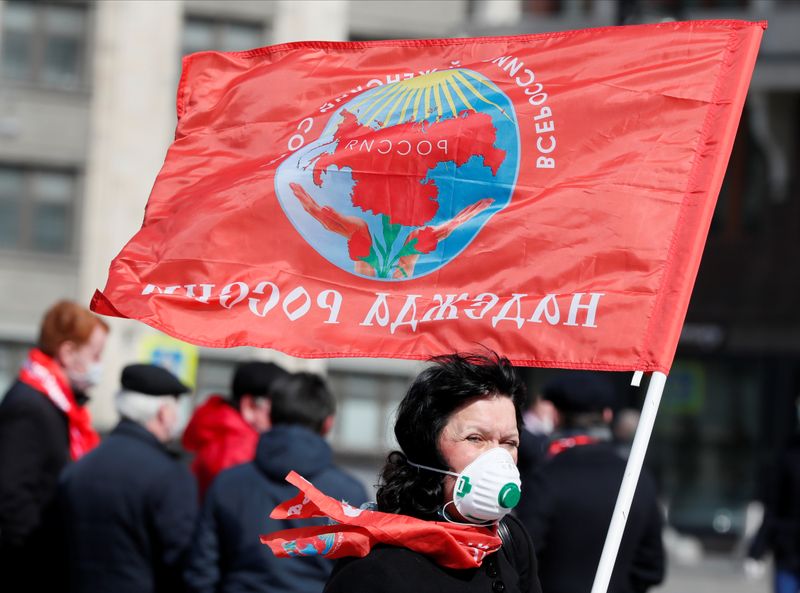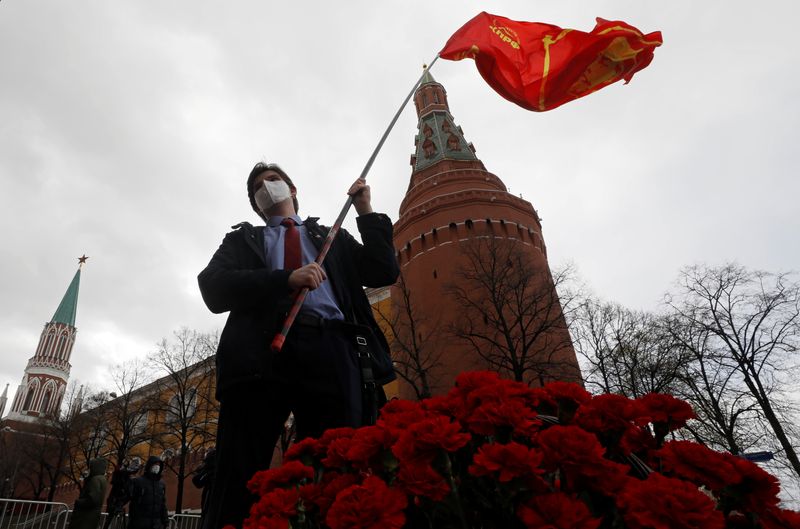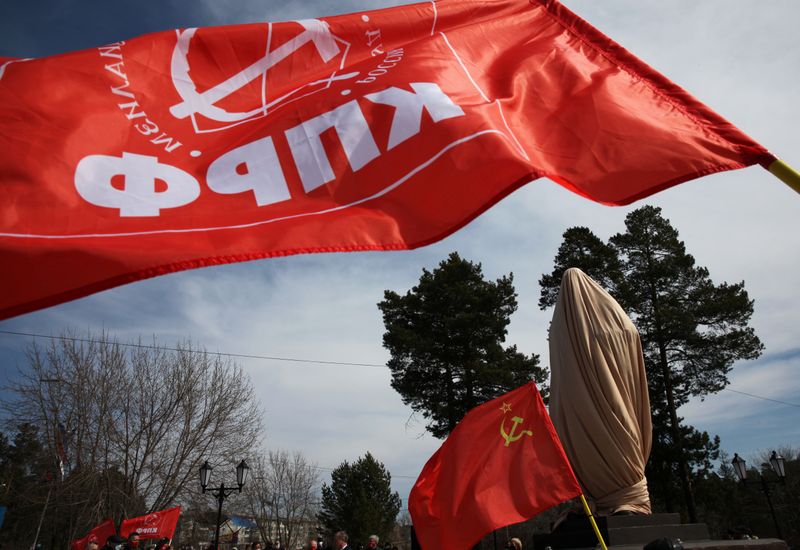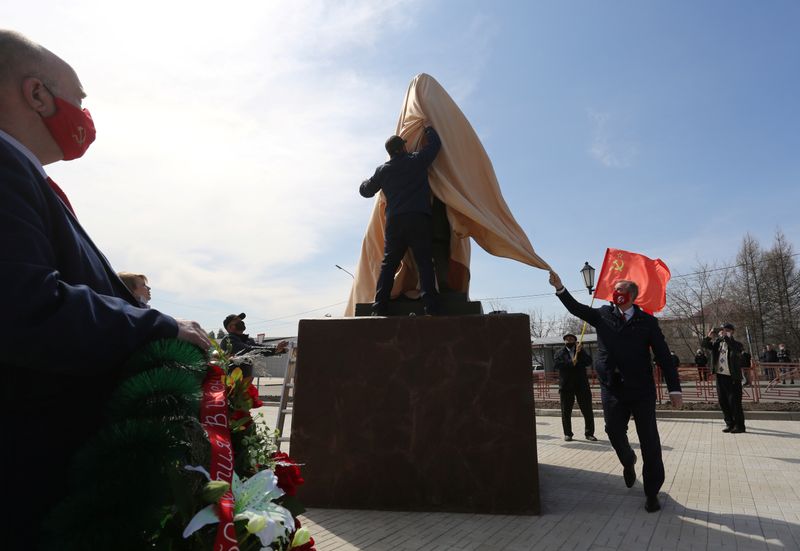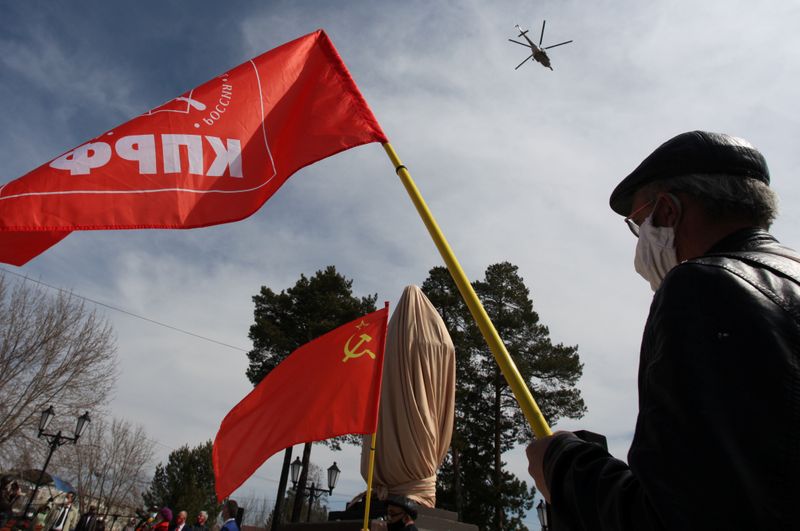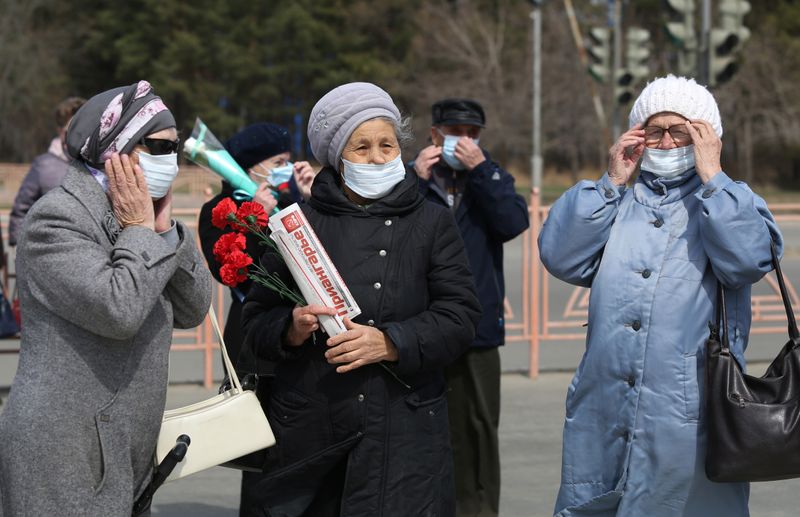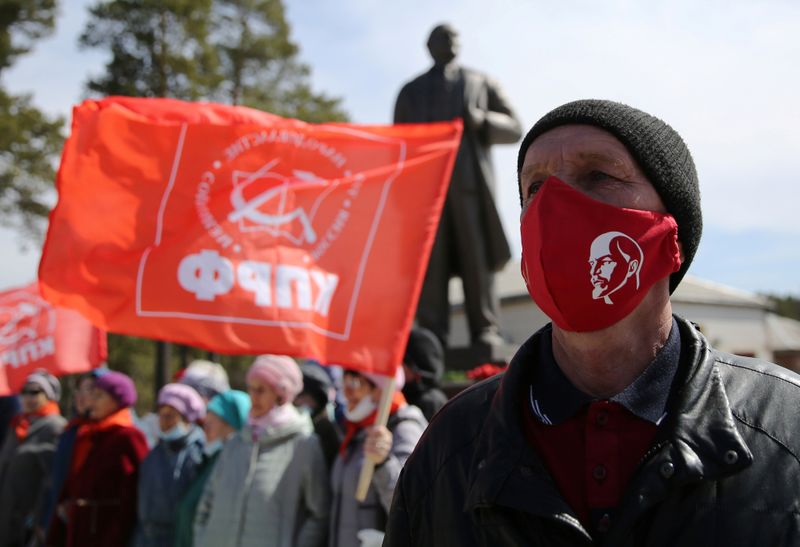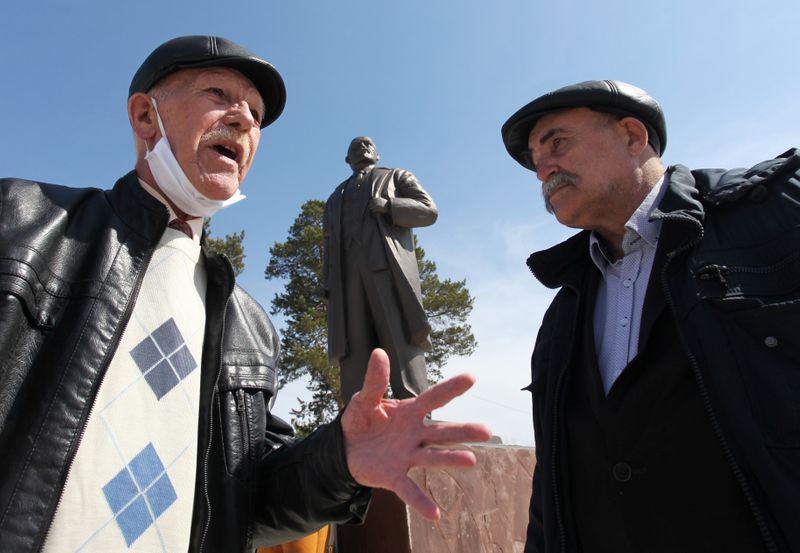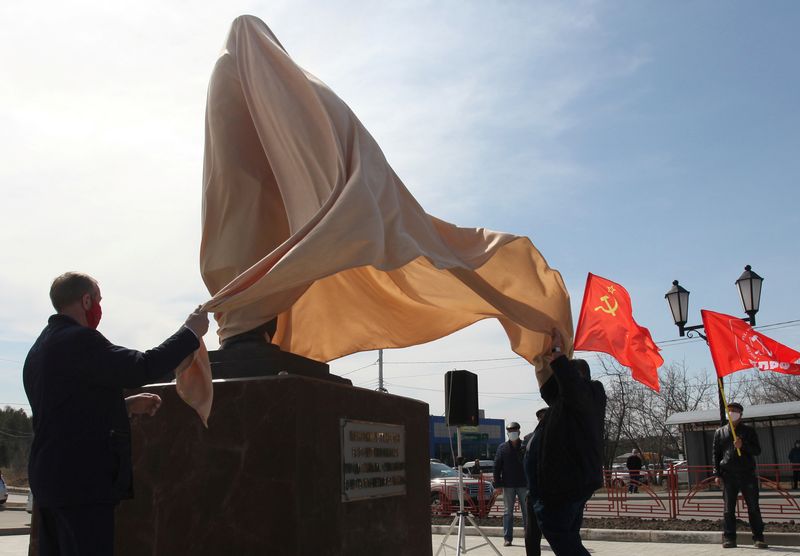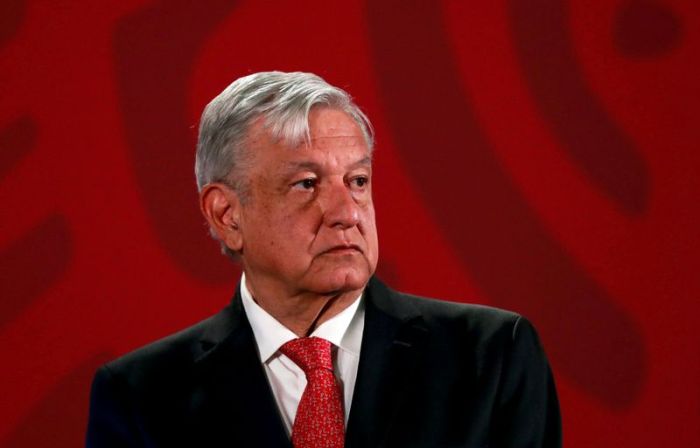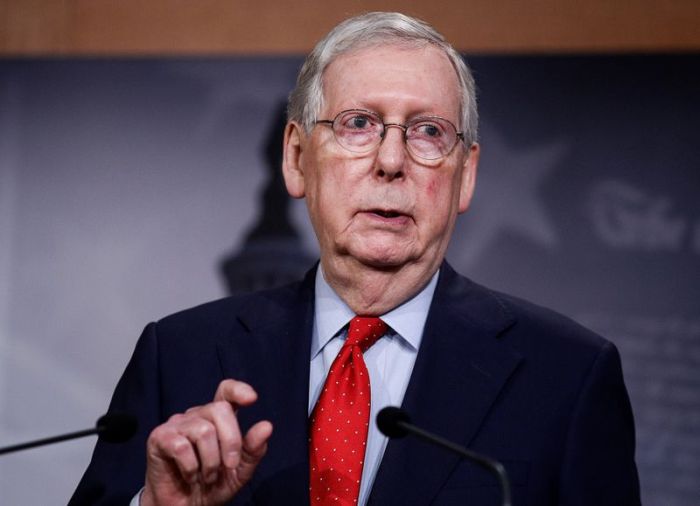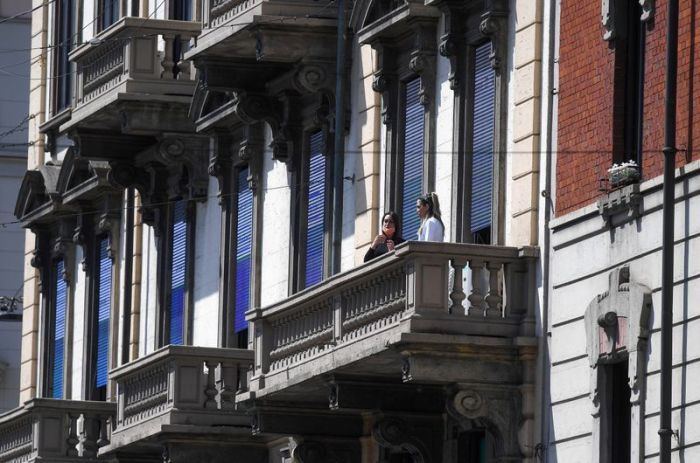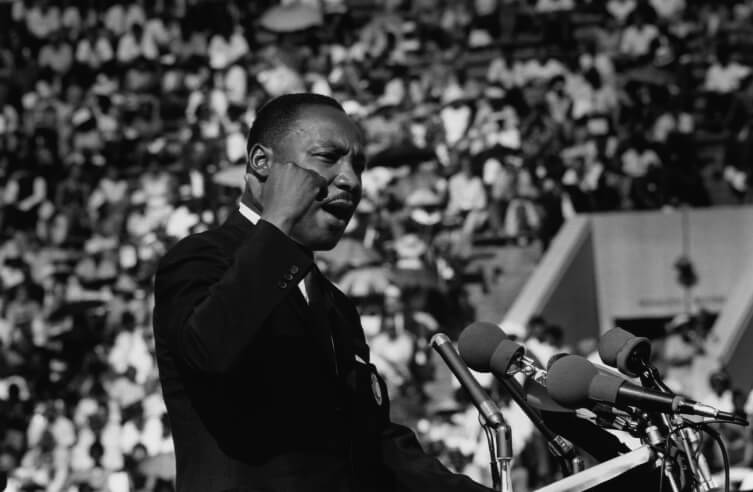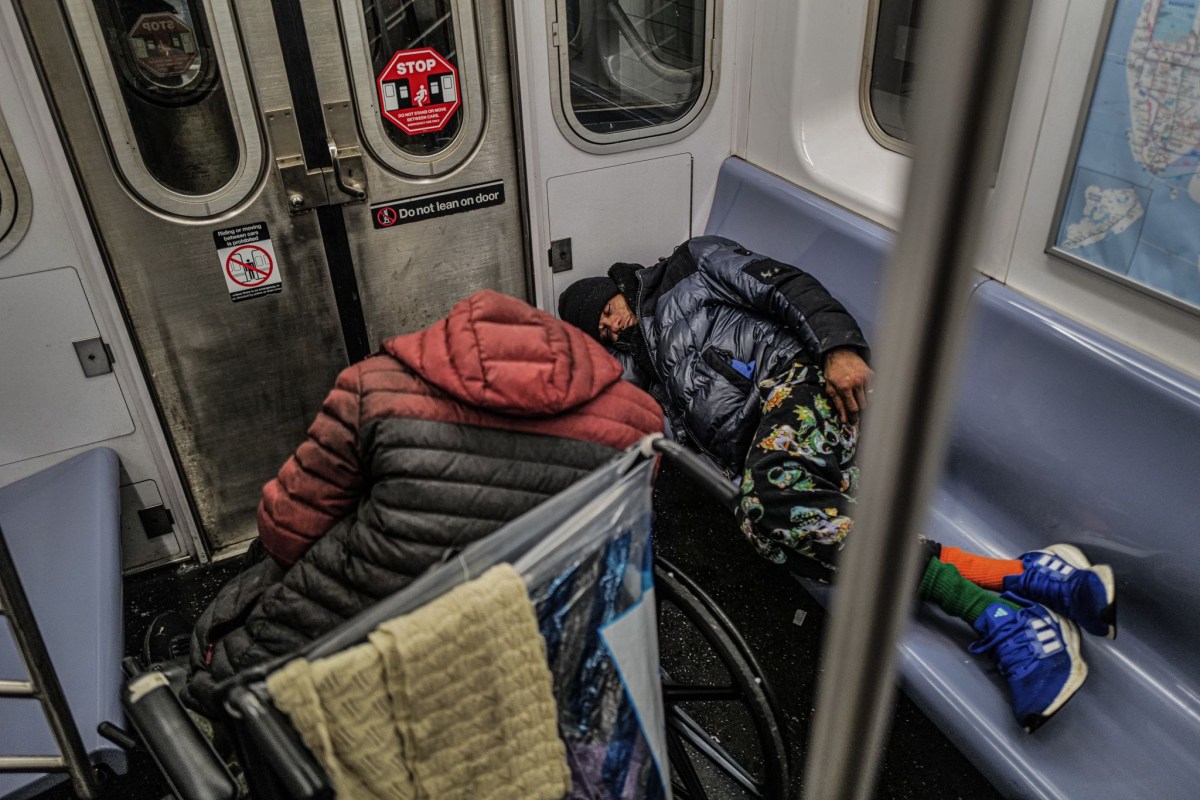MOSCOW (Reuters) – Dozens of Russian communists defied Moscow’s coronavirus lockdown on Wednesday by marching across Red Square to lay flowers outside Vladimir Lenin’s tomb to mark 150 years since the birth of the Bolshevik leader.
Led by Gennady Zyuganov, head of Russia’s Communist Party, a small group of people, some holding red flags, marched to the granite mausoleum where Lenin’s embalmed body lies to pay their respects.
The ritual, which is observed annually on April 22, comes with Moscow in its fourth week of a lockdown aimed at slowing the spread of the new virus.
Muscovites are only allowed outside to buy food or medicine nearby, receive urgent medical treatment, walk the dog or take out the trash.
A policeman guarding Red Square, which has been closed off to the public and was otherwise empty as it snowed on Wednesday, told Reuters the communists had received special permission to stage the event.
The Moscow police and the mayor’s office did not immediately respond to requests for comment.
Speaking to reporters on Red Square, Zyuganov said the Russian authorities’ efforts to contain the virus were no match for the Soviet approach to fighting a smallpox outbreak in Moscow in 1960.
“Now they can’t even produce masks in three months,” he said, referring to the current Russian authorities.
Some Russian regions have experienced shortages of protective gear for medical workers but the country has still exported equipment to countries including the United States, Italy and Serbia.
Moscow, a city of more than 12.5 million, has been the hardest-hit of Russia’s regions by the coronavirus outbreak and on Wednesday recorded 2,548 new cases, pushing the nationwide tally to almost 58,000.
Similar events were held across the country to honour Lenin.
The initiatives, however, have drawn criticism from people who say the communist events violate lockdowns.
Vladimir Zhirinovsky, the outspoken head of Russia’s nationalist Liberal Democratic Party, has said the people laying flowers on Lenin’s tomb during lockdown should be arrested.
Russia abandoned communism when the Soviet Union collapsed in 1991, but the tomb remains a popular attraction among tourists and Russian communists.
Authorities shuttered the tomb and other attractions last month in a bid to stem the spread of the coronavirus.
Lenin died of a stroke in 1924 and is said to have wanted to be buried alongside his mother in St. Petersburg. Attempts over the years to have his body transferred there have been thwarted by warnings that such a move could split society.
(Reporting by Dmitry Madorsky and Shamil Zhumatov; Writing by Gabrielle Tétrault-Farber; Editing by Alison Williams)

